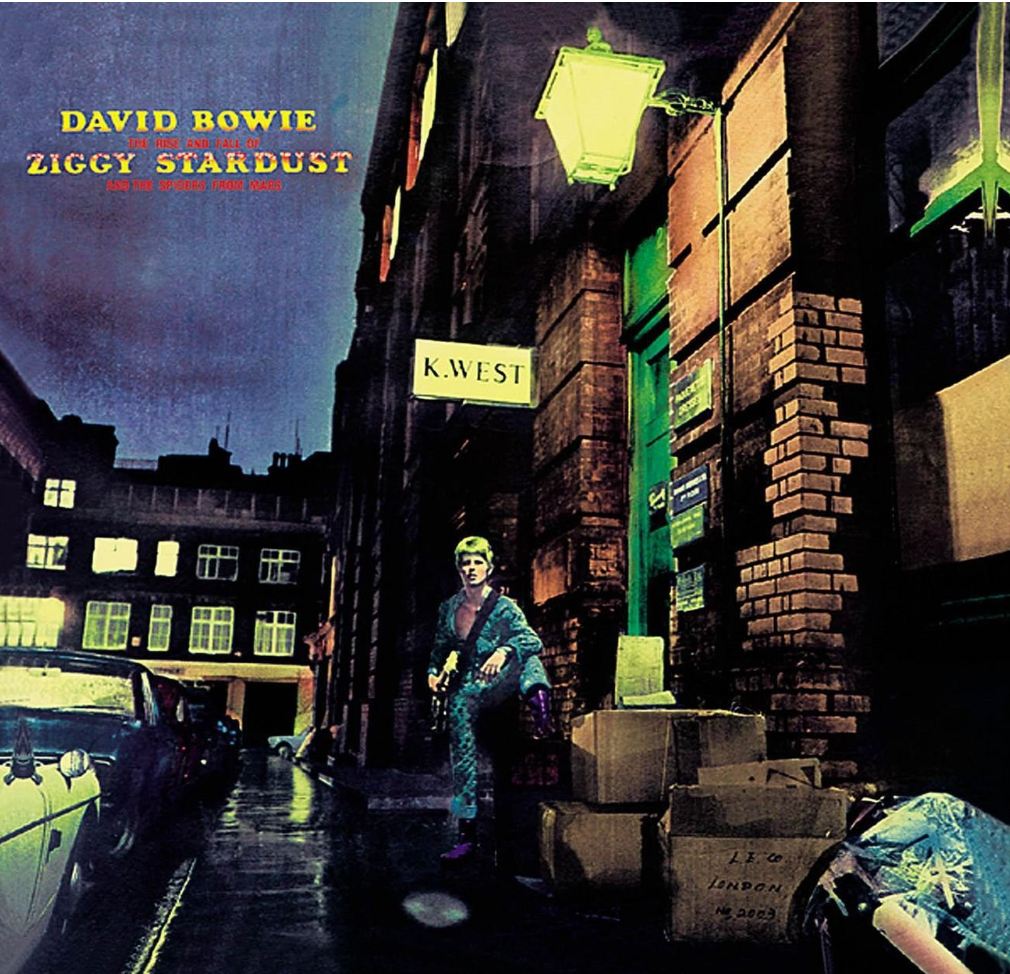
John Maggiore is a dedicated David Bowie fan and we absolutely love his daily "Bowie Blog" which you can find here: www.maggioreonbowie.com.
We recently connected with him and partnered to bring you this exclusive guest blog post on David Bowie's classic album "Ziggy Stardust and the Spiders from Mars".
What Makes Ziggy Stardust a Classic?
By Guest Blogger John Maggiore
The Rise and Fall of Ziggy Stardust and the Spiders from Mars is David Bowie’s most beloved album, widely considered one of the best rock albums of all time and a work that seems as fresh today as when it was released more than half a century ago. The androgynous, alien Ziggy Stardust iconography has become nearly ubiquitous and can be found everywhere from Ted Lasso to a giant mural on a building in Jersey City. The album is great because it contains great music, but Ziggy is much more than that and should not only be experienced at maximum volume, as the liner notes suggest, but, if at all possible, experienced live.
The only problem is that David Bowie has been dead for eight years, and he had retired Ziggy more than four decades earlier than that. But part of the genius of Bowie is that he performed in character and characters don’t have to be played by the same actor to remain vital. Ziggy Stardust is a concept album, albeit with a loose concept. Don’t listen for a linear narrative about a bisexual alien who comes to Earth as a messiah, only to be killed by his own fans. Some of that is in there, but there’s a lot more, and not everything fits together neatly. The point is less that the album is a coherent story about Ziggy Stardust, but that its an album by Ziggy Stardust.
Bowie demanded that his live audience buy into that premise— that they were not seeing a Bowie concert but rather a Ziggy concert. He made his band and crew act that way too. And not just on stage. While Bowie was Ziggy he provided an immersive experience in which reality and illusion were difficult to distinguish. The show was less like a play, in which the audience was expected to suspend disbelief for its duration, and more like what’s known in professional wrestling as “kayfabe,” the kind of alternate reality that we’re supposed to half believe is real but never act like its not.
That’s all well and good, but it wouldn’t work without a superior musical foundation. The album’s songs deliver so well as to have become part of our cultural fabric. If you’ve never owned a Bowie album, you’ve probably heard “Starman” in a movie soundtrack or even television commercial. The opening guitar riff of “Ziggy Stardust” is one of rock’s definitive moments. The energy and naughty surprise twist near the end of ‘Suffragette City” is the Red Bull of pop music. And “Rock ‘N’ Roll Suicide” will remind you that you’re not alone.
And you can hear all that whenever you want, in your ear buds, through your car radio or on that anachronistic turntable that all the cool kids own these days. But Ziggy is best experienced rather than simply heard. I’m only slightly older than the album itself. By the time I got to see Bowie in concert, he was on to different characters. And indeed, “David Bowie” was a kind of meta-character played by a person whose name was really David Jones. All that makes for great potential for someone else to pick up the mantle and, as to paraphrase the Ziggy song, “Star,” make it so enticing by playing the part. Bowie’s very embrace of artifice makes his art transferable, and while Bowie’s original will never be surpassed, the experience at the Lowell Summer Music Series of the entire album performed live promises Ziggy as he was meant to be experienced.
- John Maggiore www.maggioreonbowie.com


